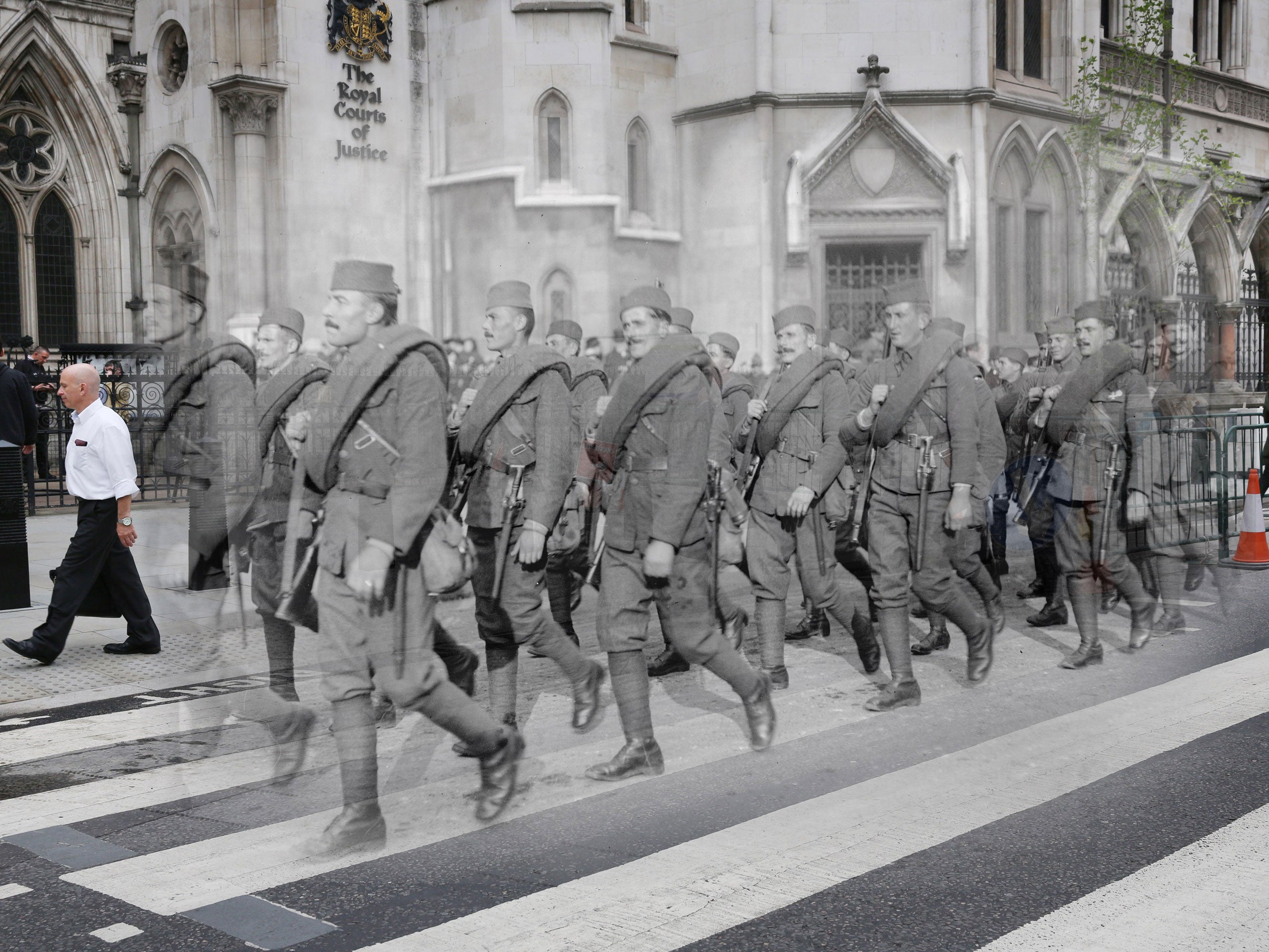First World War Centenary: Powerful photographs bring wartime Britain to life
Composite images put moments from the conflict in the present day

Your support helps us to tell the story
From reproductive rights to climate change to Big Tech, The Independent is on the ground when the story is developing. Whether it's investigating the financials of Elon Musk's pro-Trump PAC or producing our latest documentary, 'The A Word', which shines a light on the American women fighting for reproductive rights, we know how important it is to parse out the facts from the messaging.
At such a critical moment in US history, we need reporters on the ground. Your donation allows us to keep sending journalists to speak to both sides of the story.
The Independent is trusted by Americans across the entire political spectrum. And unlike many other quality news outlets, we choose not to lock Americans out of our reporting and analysis with paywalls. We believe quality journalism should be available to everyone, paid for by those who can afford it.
Your support makes all the difference.The First World War is quickly vanishing from living memory but a series of photographs merging moments from the conflict with the present day have brought it back to life.
A tank rolling through the streets of London in 1917 is shown in one image, German prisoners of war can be seen marching through Southend-on-Sea and wounded soldiers play football in the grounds of Blenheim Palace, then used as a military hospital.
The images were released to mark the centenary of the First World War and events are happening across the UK today to mark the outbreak of the conflict in Britain.
Germany declared war on France and invaded Belgium on 3 August 1914 and when the country ignored Britain’s ultimatum to withdraw by the end of the following day, the Government declared war.
More than 9 million soldiers were killed in the bloody conflict, including around 800,000 British soldiers and more than 120,000 civilians who died as a result of military action, malnutrition and disease in the UK.
Join our commenting forum
Join thought-provoking conversations, follow other Independent readers and see their replies
Comments